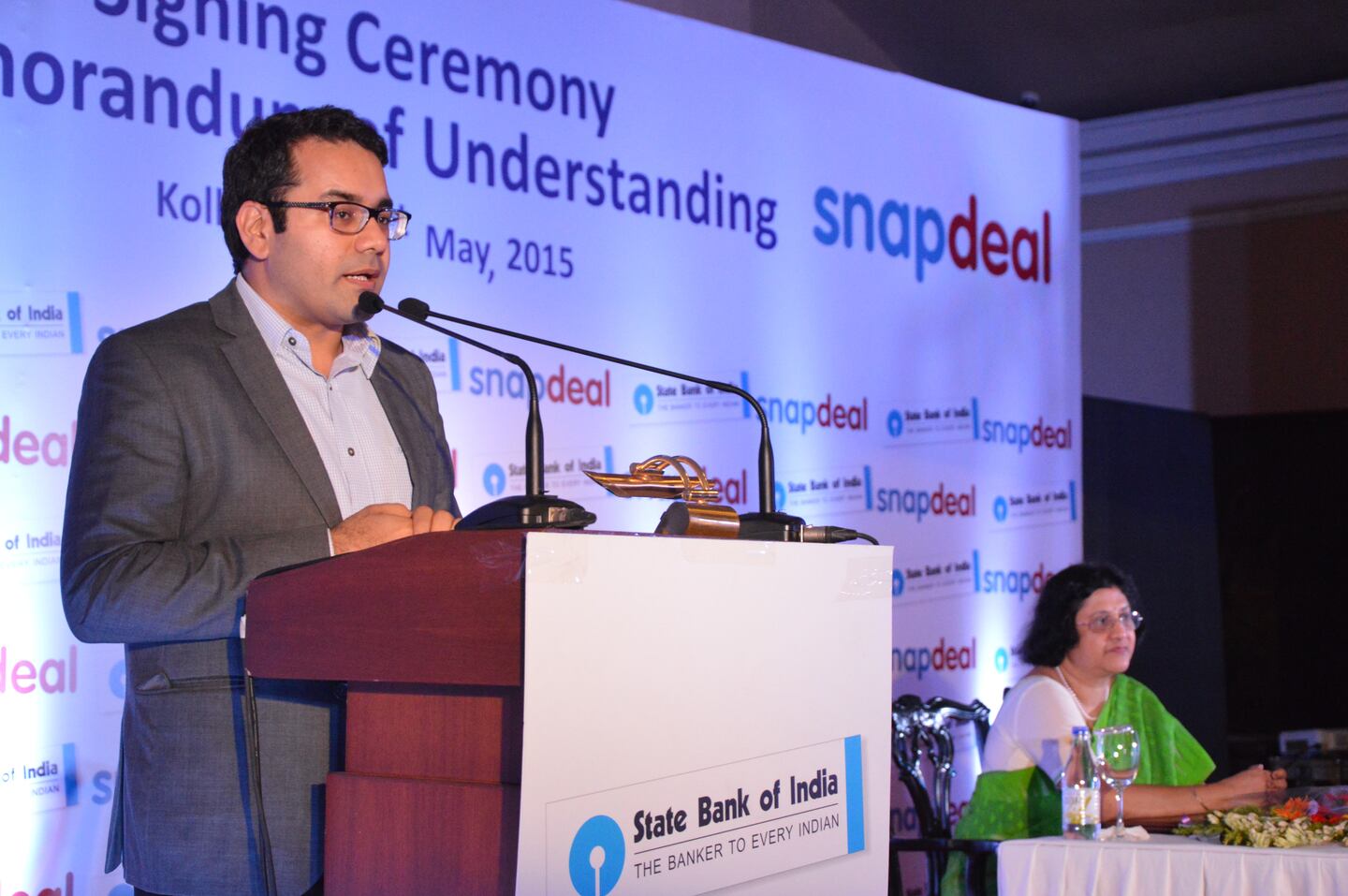
The Business of Fashion
Agenda-setting intelligence, analysis and advice for the global fashion community.

Agenda-setting intelligence, analysis and advice for the global fashion community.

MUMBAI, India — Snapdeal has rejected an acquisition bid from rival Flipkart Online Services Pvt, saying it will compete alone in India's e-commerce market.
Snapdeal, which said it will sell off some non-core assets, is set to post a gross profit this month, the startup said in an emailed statement Monday.
SoftBank Group Corp., which has almost a third of Snapdeal shares, and Tiger Global Management, which holds a substantial stake in Flipkart, had been pushing the two competitors to merge so they can create a stronger local company to fend off Amazon.com Inc. SoftBank abandoned the effort after trying to negotiate the deal, said people with knowledge of the matter, who asked not to be identified because the talks were private.
“We respect the decision to pursue an independent strategy,” SoftBank said in a statement. “We look forward to the results of the Snapdeal 2.0 strategy, and to remaining invested in the vibrant Indian e-commerce space.”
ADVERTISEMENT
Flipkart had offered about $950 million, but Snapdeal co-founders Kunal Bahl and Rohit Bansal, as well as other board members, had been at odds on how to proceed, people with knowledge of the discussions said last week. Snapdeal and Flipkart have a history of animosity born from years of competing as the two largest local players in India’s expanding e-commerce market. Jasper Infotech Pvt owns the Snapdeal brand.
“Snapdeal has been exploring strategic options over the last several months,” the company said in a statement. “The company has now decided to pursue an independent path and is terminating all strategic discussions as a result.”
By Saritha Rai; editors: Robert Fenner, Reed Stevenson, Edwin Chan.
From analysis of the global fashion and beauty industries to career and personal advice, BoF’s founder and CEO, Imran Amed, will be answering your questions on Sunday, February 18, 2024 during London Fashion Week.
The State of Fashion 2024 breaks down the 10 themes that will define the industry in the year ahead.
Imran Amed reviews the most important fashion stories of the year and shares his predictions on what this means for the industry in 2024.
After three days of inspiring talks, guests closed out BoF’s gathering for big thinkers with a black tie gala followed by an intimate performance from Rita Ora — guest starring Billy Porter.